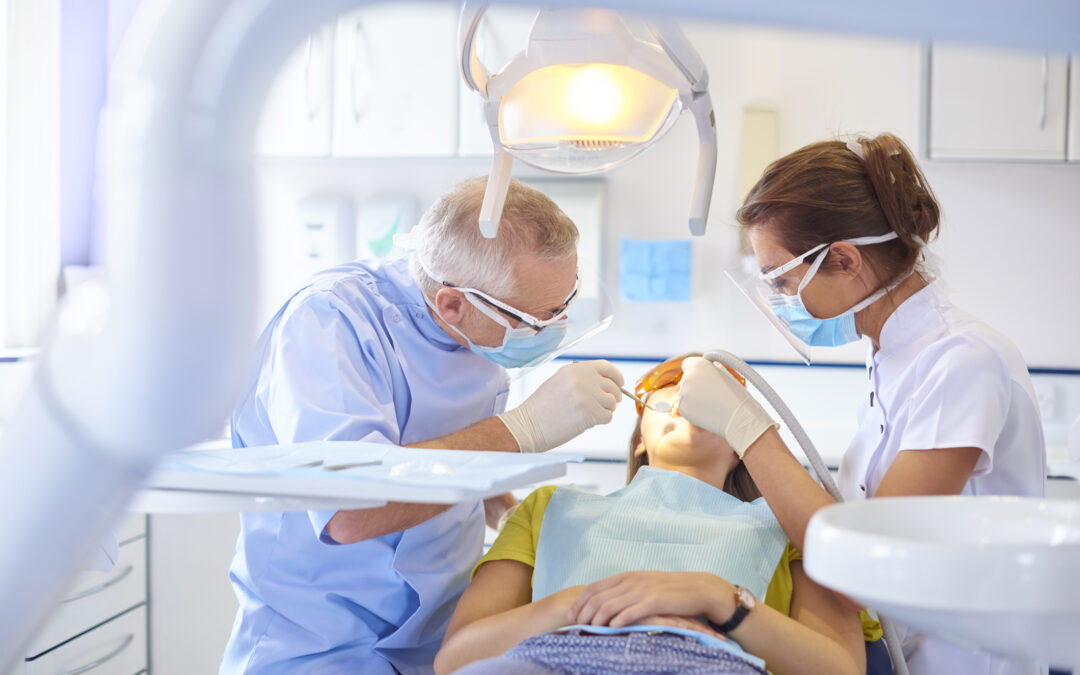A prevalent disorder when a person has dread or anxiety about seeing the dentist or getting dental care is dental anxiety, commonly referred to as a “dental phobia.” This might range from slight trepidation or fear to a severe phobia that keeps a person from going to the dentist at all.
Many common root causes of dental phobia include the following:
- Fear of pain
- Fear of needles
- Past negative experiences
- Embarrassment or self-consciousness
- Fear of loss of control
- Sensory issues
Dental phobia can stop people from going to the dentist even when they need it. It can lead to a lot of problems cropping up in the future and interfere with the maintenance of good oral health. If you feel like you have a dental phobia, you must initially discuss your concerns with a dentist near you so they can provide you with solutions such as relaxation techniques and sedation dentistry.
Types of Sedation Dentistry
Using medication during dental operations is known as sedation dentistry. Those who require substantial dental work that might otherwise be difficult or painful can use it, as can individuals who have dental phobia.
There are various sedative techniques that can be applied in dentistry, including:
NO2:
Nitrous oxide is a gas that is breathed in through a mask and is also referred to as “laughing gas.” It can be used to treat mild to moderate dental anxiety since it creates a relaxed, euphoric feeling.
Oral sedation:
This type of sedation involves ingesting a pill or liquid drug before the dental procedure. Depending on the dose, oral sedation can result in varied degrees of drowsiness, ranging from light relaxation to a deep slumber.
IV Sedation:
An intravenous (IV) line is used to provide sedative drugs during IV sedation. For more involved dental treatments, IV sedation offers a profound level of drowsiness.
Patients who opt for sedation dentistry find it easier to receive essential dental care since it helps them feel more at ease and relaxed during dental procedures. But, it’s crucial to go over the advantages and hazards of sedation with your dentist and to follow their preparation recommendations, such as fasting before the consultation.
Advantages and Disadvantages of Sedation Dentistry
Patients who have dental anxiety or need substantial dental work frequently choose sedation dentistry. There are benefits and drawbacks to consider, like with any medical procedure. The following are some of the main benefits and drawbacks of sedation dentistry.
Advantages
- Decreased discomfort and anxiety: Patients who receive sedation dentistry during dental treatments may feel more at ease and relaxed, which can make the procedure less uncomfortable and stressful.
- Improved pain tolerance: Sedation can lower a patient’s pain threshold, enabling dental procedures that would be difficult or painful to execute otherwise.
- Efficiency in terms of time: Sedation can help patients feel more at ease and calm, which can speed up and improve the efficiency of a dental process.
- Improved safety: Sedation can boost safety by lowering the likelihood of unforeseen movements or difficulties by encouraging patients to remain motionless and relaxed throughout the dental operation.
- Improved experience with dental care: Access to dental treatment is improved because sedation dentistry can enable patients who would otherwise be unable to get necessary dental care.
Disadvantages
- Risk of complications: Difficulties are possible with sedation, including allergic responses, respiratory depression, or other negative effects.
- Extra expense: The price of the treatment may increase depending on the type of sedative employed.
- Recovery period: Following some sedative procedures, the patient may experience drowsiness or confusion while recovering.
- Loss of consciousness or control during the dental operation: For some patients, sedation may result in a loss of awareness throughout the procedure, which can be disturbing or uncomfortable.
- Restricted suitability: Sedation may not be safe or suitable for all people, particularly those who are taking certain drugs or have specific medical conditions.
Sedation Dentistry in Kelowna
To determine whether sedation dentistry near you is a good option for you, you’ll need to consult with Dr. Sean M. Swift Dentistry. Our dentist in Kelowna can guide you on the right path to accessible and worry-free dentistry.
